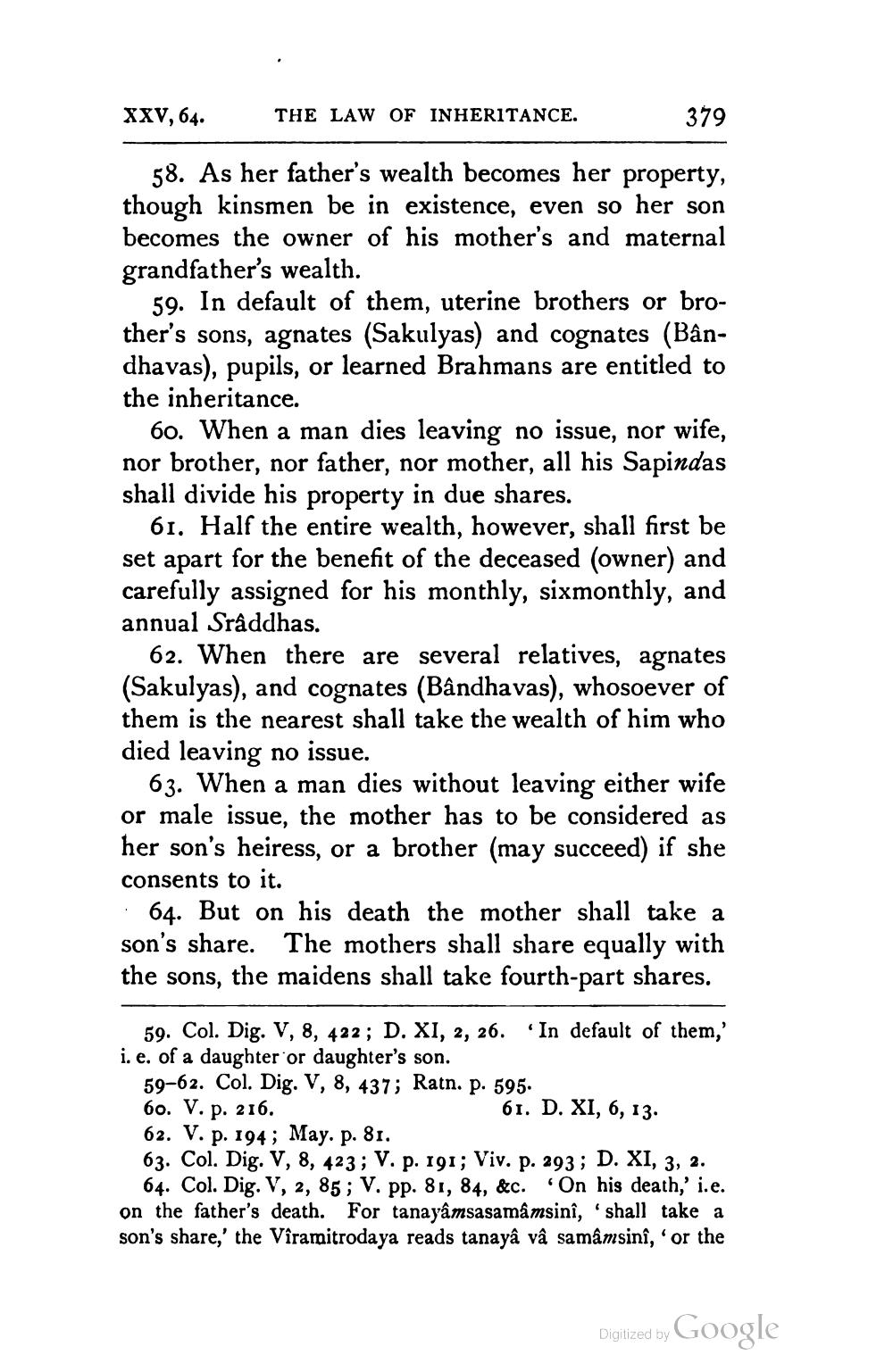________________
XXV, 64.
THE LAW OF INHERITANCE.
379
58. As her father's wealth becomes her property, though kinsmen be in existence, even so her son becomes the owner of his mother's and maternal grandfather's wealth.
59. In default of them, uterine brothers or brother's sons, agnates (Sakulyas) and cognates (Bândhavas), pupils, or learned Brahmans are entitled to the inheritance.
60. When a man dies leaving no issue, nor wife, nor brother, nor father, nor mother, all his Sapindas shall divide his property in due shares.
61. Half the entire wealth, however, shall first be set apart for the benefit of the deceased (owner) and carefully assigned for his monthly, sixmonthly, and annual Sraddhas.
62. When there are several relatives, agnates (Sakulyas), and cognates (Bandhavas), whosoever of them is the nearest shall take the wealth of him who died leaving no issue.
63. When a man dies without leaving either wife or male issue, the mother has to be considered as her son's heiress, or a brother (may succeed) if she consents to it. • 64. But on his death the mother shall take a son's share. The mothers shall share equally with the sons, the maidens shall take fourth-part shares.
59. Col. Dig. V, 8, 422; D. XI, 2, 26. 'In default of them, i. e. of a daughter or daughter's son.
59-62. Col. Dig. V, 8, 437; Ratn. p. 595. 60. V. p. 216.
61. D. XI, 6, 13. 62. V. p. 194; May. p. 81. 63. Col. Dig. V, 8, 423; V. p. 191; Viv. p. 293 ; D. XI, 3, 2.
64. Col. Dig. V, 2, 85; V. pp. 81, 84, &c. 'On his death,' i.e. on the father's death. For tanayâmsasama msinî, 'shall take a son's share,' the Vîramitrodaya reads tanayâ vâ samâmsini, or the
Digitized by Google




